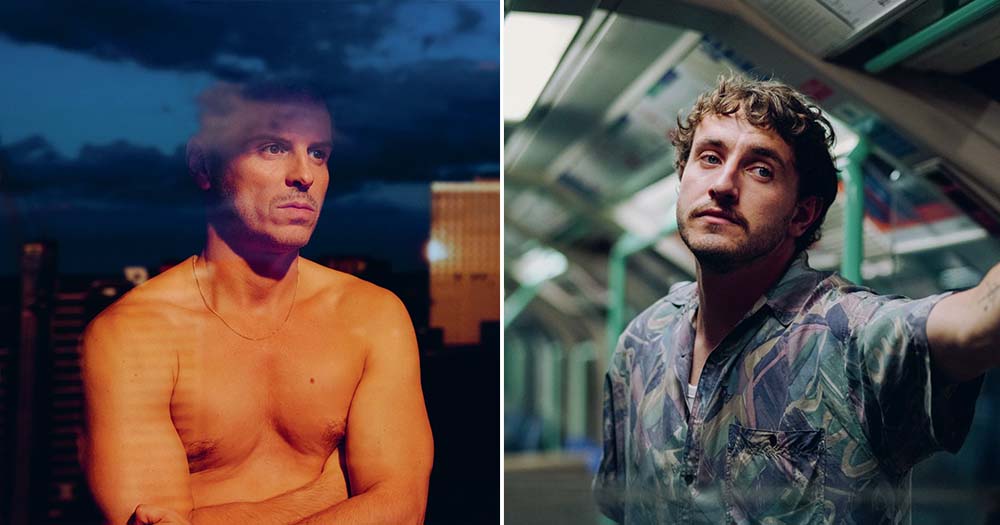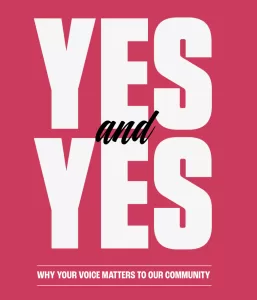I’ve brushed shoulders with Andrew Scott and Paul Mescal separately before. While myself and Paul grew up not too far away from each other in Kildare, it was in fact in Malta where our paths first crossed, dining back to back in a fancy rooftop restaurant as he and Pedro Pascal enjoyed a break from the set of Gladiator 2. Less surprisingly, I encountered Andrew Scott on a random night out in The George – resisting all urges to tell him how much I loved him as the Hot Priest in Fleabag.
Now, we are face to face, being formally introduced as we prepare to talk about their new film, All of Us Strangers. And while I am aware that Paul and Andrew are Hollywood stars, there is a sense of familiarity between us that I don’t believe has anything to do with our previous interactions, if you could even call them that.
However, it could perhaps be a result of their warm welcomes and enthusiastic handshakes, or because their Irishness makes it feel like I’m simply chatting to my second cousin’s best friends who are home from Australia for Christmas (and that’s probably not far off the truth. Everyone knows everyone, etc).
Despite Andrew and Paul having enjoyed a late night in Love Tempo after the Dublin Gala screening of All of Us Strangers the evening prior, this morning they are beaming with energy. I get the sense that it feels good to be back on Irish soil.
On that note, we discuss the screening, with Andrew describing it as “absolutely magical” and “overwhelming”.
He explained: “I think it’s because of the subject matter of the film. I think it’s about being here with Paul, I think it’s about my relationship with growing up in Dublin and how much it’s changed – most ways massively for the better, in some ways still a long way to go – but it felt completely unimaginable to 16-year-old me.”
Scott grew up in Ireland at a time when homosexuality was criminalised, and when he came out publicly in 2013, same-sex marriage remained illegal. Some of the experiences that come with living through that time can be seen in his All of Us Strangers character, Adam.
The film’s protagonist is, like Scott, a gay man in his 40’s. He lives in a near-empty London tower block, where one night, he encounters a mysterious neighbour, Harry (played by Mescal), which punctures the rhythm of his everyday life.
As a relationship develops between them, Adam is preoccupied with memories of the past and finds himself drawn back to the suburban town where he grew up, and to the childhood home where his parents (played by Claire Foy and Jamie Bell) appear to be living, just as they were in the days before they died, 30 years ago.
There are a series of incredibly authentic intergenerational conversations about sexuality and identity throughout the film. Perhaps some of the most moving are between Adam and his parents, as he finally reveals to them a version of himself that they never got to meet when they were alive.
When asked about how much of his own experiences were reflected in Adam’s character, Scott replied that while he is grateful to now be emancipated from shame and feel “very comfortable” and “free” in himself, part of the job was to go back to a place where that wasn’t the case.
“I recognise the person, but I feel so removed from that person in another way,” he began.
“In some ways, it’s painful to go back but I always say that it’s a privilege to express that pain because if you’re doing it in a way that is of use to other people, and with other people who understand, then I think, you know, it’s a hard thing to do, it’s a vulnerable thing to do, but you’re doing it to be of use and I think that’s the real purpose of art.”
Paul Mescal’s character, Harry, is of a different generation, which prompts an interesting conversation in the film surrounding the evolution of language. While Adam feels comfortable identifying as “gay” Harry associates the word with insults he heard growing up and opts instead to call himself “queer”.
As someone who spent many years playing GAA and immersed in male ‘locker room culture’, Mescal shared his own memories of becoming aware of the casual use of homophobic slang.
“When I was growing up playing sport, it kind of stopped happening. I remember being in sixth class, and us being sat down by the principal, and it was the first time I remember as a class being told that what you’re saying is wrong. Because it was just part of the vernacular, ‘Oh that’s so gay,’ it was just a word because there was no context for it.”
He added, “That was such a formative movement for me. I was 12, and it was the easiest thing that a person with responsibility could do: give people information and explain to them why.”
Paul recalled seeing a massive change from that moment, and “hand on heart” said that contrary to the stigma, no matter what dressing rooms he was in, that language was never present or accepted.
For his character Harry, while it was seemingly easier to grow up queer compared to Adam (Andrew Scott), Paul Mescal notes, “When it boils down to it, the same barriers innately exist”.
“I think that boils down to the relationship that your parents have to your sexuality. So it doesn’t matter how comfortable society is getting with terminology or queerness or being gay in society, if your parents don’t understand it, you’re f*cked.
“And that’s where Harry’s at. I think it’s kind of both an accurate depiction of the way society is moving, which is really positive, but also, I think it’s a criticism and a warning to parents at the same time, which I think is a really nice detail in the writing.”
Many queer people would like their parents to watch All of Us Strangers for that exact reason. However, the reality of family members seeing other elements of the film, like the gay sex scenes, is perhaps more intimidating, even though it shouldn’t be.
Speaking on removing the shame surrounding queer intimacy on screen, Andrew commented: “When I was growing up and you’d have to look at heterosexual sexuality all the time, just because it’s not my sexuality I don’t find it repulsive. The reason that people find it uncomfortable to look at is because they haven’t been exposed to it.”
He continued: “What happened for so many years was the erasure of representation of any form of sexuality that wasn’t heterosexuality and that’s what’s so dangerous… Different forms of sexuality and different forms of gender identity have existed since the dawn of humanity…There’s an emergence of people talking about it now and there’s representation and that, of course, initially is going to invoke fear in people like any emergence of anything that has been unseen before, but it doesn’t mean that the world hasn’t always been shared by and inhabited by different forms of sexuality.”
Scott further expressed, “One of the most insidious things I think that we’ve had, not just in Irish culture but it certainly exists in Irish culture, was the conspiracy of silence.
“This is why the (Marriage Equality) referendum was so important… At the beginning when the referendum was happening, I was like, ‘Why are we knocking on people’s doors asking for permission?’ I found it frustrating. I was like, ‘Why don’t they just pass the law?’
“But actually, because we had to have the conversation, what was so effective culturally is that you unearth the soil, you have to be confronted with the idea that gay people or queer people exist, and that involves being able to talk about it.
“Because fundamentally, it’s not particularly that radical. It’s not a flaw, it’s not a trait, it’s not a talent, it’s just sexuality.”
The increase of LGBTQ+ representation in media is certainly a thing to celebrate, and having Irish actors at the helm is the cherry on top of the cake. The chemistry between the two on-screen has been lauded as sexy, fearless and intense, and despite not knowing each other very well before filming started, it is evident that the pair’s relationship off-screen has also blossomed.
“Something that I love about our job is you have the capacity romantically and platonically to fall in love with the people that you’re working with,” Paul said. “Sometimes I think there’s a professional obligation for that to happen and sometimes you kind of have to force a round peg into a square, but this just felt really natural.”
On how that benefited their characters in the film, he laughed, saying, “I remember thinking, ‘Jesus I don’t remember looking at you like that!’ It has nothing to do with the sex, it was that weird thing when we’re looking at each other’s lips, and I was just like, ‘This is fucking mad!’”
Andrew added that working with Paul is “completely wonderful for so many reasons”.
“You get to have a colleague and a friend, and I think our Irishness is something that we both celebrate because we have obviously come from the same culture. It’s really joyful, and then the fact that we make something that people really like…I think we were both taken aback when we watched the film by how readable the connection is.”
We conclude the interview there, but not before both Andrew and Paul turn the tables and ask me some questions: Where am I from, what sports do I play… Their kindness and charm throughout the morning have made me even more proud that they are establishing themselves as beacons of Irish talent and queer storylines.
Andrew Haigh’s All of Us Strangers officially released in Ireland on January 26, 2024, after much anticipation. Many will agree that it’s a heart-wrenching, gut-punch of a film, and if there’s anyone out there that hasn’t seen it yet, strap yourself in for an emotional ride that will stay with you long after the credits roll.
This interview with Paul Mescal and Andrew Scott originally appeared in Issue 382 of GCN from February 2024. Read it in full here.
© 2024 GCN (Gay Community News). All rights reserved.
This article was published in the print edition Issue No. 382 (February 1, 2024). Click here to read it now.
Support GCN
GCN is a free, vital resource for Ireland’s LGBTQ+ community since 1988.
GCN is a trading name of National LGBT Federation CLG, a registered charity - Charity Number: 20034580.
GCN relies on the generous support of the community and allies to sustain the crucial work that we do. Producing GCN is costly, and, in an industry which has been hugely impacted by rising costs, we need your support to help sustain and grow this vital resource.
Supporting GCN for as little as €1.99 per month will help us continue our work as Ireland’s free, independent LGBTQ+ media.

